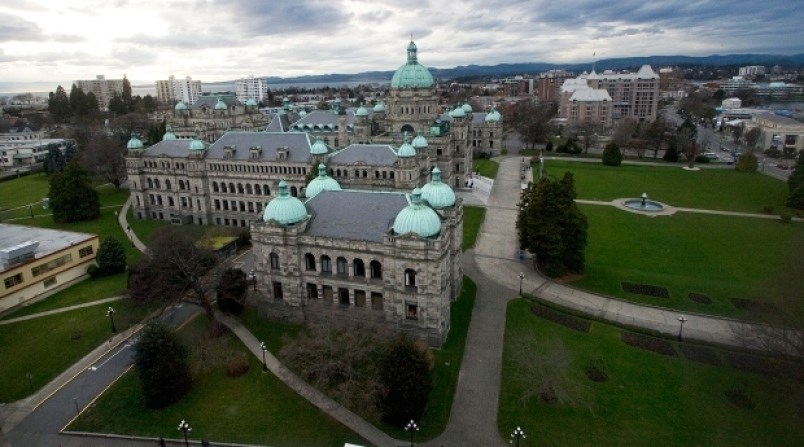Prudence was the message as B.C. Finance Minister Carole James tabled her budget last week.
“The old practice of hoarding surplus at the expense of people is over,” she declared early on in her speech, just three lines after addressing the housing crisis, and promising a future everyone can afford. “We are choosing a balanced fiscal approach, one that maintains a reasonable surplus while investing in people.”
But diving into the numbers for the B.C. Ministry of Municipal Affairs and Housing reveals a budget that looks greatly reduced. While “the old practice of hoarding surplus” might be a thing of the past, there’s an unmistakable sense of parsimoniousness in an allocation that’s set to drop from $828.3 million in the current fiscal year to $650.3 million in the one ahead.
On the plus side, housing advocates won’t be the ones weeping. An extra $19.8 million is earmarked for housing, including the residential tenancy branch and BC Housing.
Rather, the shortfall is borne almost entirely by funding for local government initiatives, including financial and other support to local governments, as well as the management of cross-government initiatives. Those activities will lose $198 million, far more than the $178 million pared from the ministry’s budget.
Foreign absence
Conspicuous by their absence from last week’s provincial budget were any references to foreign-buyer taxes or speculation and vacancy taxes (for which declaration forms hit mailboxes last week).
Perhaps the lack of a mention was because, as Finance Minister James claimed, “the days of cashing in on a hot real estate market at the expense of hard-working British Columbians are done.” According to data from the B.C. Ministry of Finance, foreign involvement in B.C. residential real estate transactions last year stayed below 2 per cent during the final eight months of the year. The peak was in February, with 2.5 per cent of residential transactions in the province having foreign involvement, and activity ebbed to a low of 1 per cent in November.
These rates compare with 9 per cent in July 2016, when the BC Liberals introduced the first iteration of the foreign-buyer’s tax, and 3 per cent in 2017, the year the BC NDP came to power.
The average for the city of Vancouver last year was 3.5 per cent. The Metro Vancouver municipality with the highest rate of involvement was Delta, where 4 per cent of residential transactions involved a foreign buyer.
But the real haven for foreign buyers in Metro Vancouver was rural property, with 6.2 per cent of residential purchases involving a foreign buyer occurring on rural properties outside municipal boundaries.
Stress test changes
The same day B.C. unveiled its budget for the coming year, the federal Office of the Superintendent of Financial Institutions proposed changing the mortgage stress test that many have criticized as limiting homebuyers’ borrowing power.
Designed to protect buyers from buying beyond their means, the stress test currently requires borrowers to qualify according to the higher of the five-year average posted rate, or two percentage points higher than their actual mortgage rate. The proposal announced last week will require buyers to qualify according to “the weekly median five-year fixed insured mortgage rate from mortgage insurance applications, plus two per cent.”
The exact impact the stress test, introduced in 2019, has had on buyers, particularly first-time purchasers, is tough to tell.
According to property transfer data from the B.C. Ministry of Finance, the number of transactions by first-time homebuyers in Metro Vancouver increased seven per cent last year compared with 2018’s total, to 4,642. The sharpest increases were in Delta, Coquitlam and Vancouver, which saw transactions rise 54 per cent, 38 per cent and 26 per cent, respectively.



